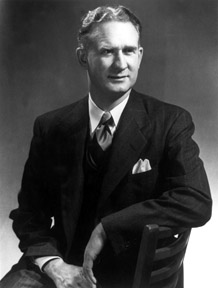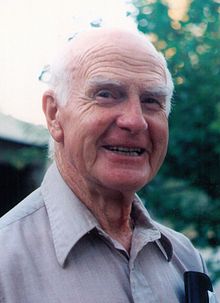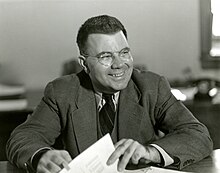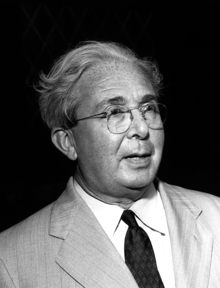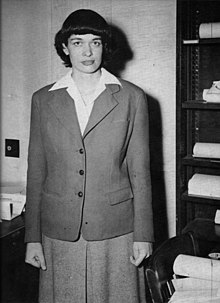Portal:Physics
The Physics Portal


Physics is the scientific study of matter, its fundamental constituents, its motion and behavior through space and time, and the related entities of energy and force. Physics is one of the most fundamental scientific disciplines. A scientist who specializes in the field of physics is called a physicist.
Physics is one of the oldest academic disciplines. Over much of the past two millennia, physics, chemistry, biology, and certain branches of mathematics were a part of natural philosophy, but during the Scientific Revolution in the 17th century, these natural sciences branched into separate research endeavors. Physics intersects with many interdisciplinary areas of research, such as biophysics and quantum chemistry, and the boundaries of physics are not rigidly defined. New ideas in physics often explain the fundamental mechanisms studied by other sciences and suggest new avenues of research in these and other academic disciplines such as mathematics and philosophy.
Advances in physics often enable new technologies. For example, advances in the understanding of electromagnetism, solid-state physics, and nuclear physics led directly to the development of technologies that have transformed modern society, such as television, computers, domestic appliances, and nuclear weapons; advances in thermodynamics led to the development of industrialization; and advances in mechanics inspired the development of calculus. (Full article...)
Edward Teller (Hungarian: Teller Ede; January 15, 1908 – September 9, 2003) was a Hungarian and American theoretical physicist and chemical engineer who is known colloquially as "the father of the hydrogen bomb" and one of the creators of the Teller–Ulam design based on Stanisław Ulam's design.
Born in Austria-Hungary in 1908, Teller emigrated to the United States in the 1930s, one of the many so-called "Martians", a group of prominent Hungarian scientist émigrés. He made numerous contributions to nuclear and molecular physics, spectroscopy (in particular the Jahn–Teller and Renner–Teller effects), and surface physics. His extension of Enrico Fermi's theory of beta decay, in the form of Gamow–Teller transitions, provided an important stepping stone in its application, while the Jahn–Teller effect and the Brunauer–Emmett–Teller (BET) theory have retained their original formulation and are still mainstays in physics and chemistry. (Full article...)
Did you know -
- ... that nuclear fusion reactions are probably occurring at or above the sun's photosphere; it is a process called solar surface fusion.
- ... that the submarine telescope ANTARES, intended to detect neutrinos, may also be used to observe bioluminescent plankton and fish?
- ... that a touch flash releases about a billion photons a second far less than produced in a particle accelerator?
Selected image -

Related portals
February anniversaries
- 15 February 1564 – Galileo Galilei's birthday
- 18 February 1745 – Alessandro Volta's birthday
- 15 February 1786 – Cat's Eye Nebula discovered
- 18 February 1838 – Ernst Mach's birthday
- 11 February 1847 – Thomas Edison's birthday
- 23 February 1855 – Carl Friedrich Gauss's death
- 22 February 1875 – Heinrich Hertz's birthday
- 28 February 1901 – Linus Pauling's birthday
- 18 February 1967 – J. Robert Oppenheimer's death
- 13 February 1910 – William Shockley's birthday
- 15 February 1988 – Richard Feynman died
- 28 February 2020 – Freeman Dyson's death
General images
Categories

Fundamentals: Concepts in physics | Constants | Physical quantities | Units of measure | Mass | Length | Time | Space | Energy | Matter | Force | Gravity | Electricity | Magnetism | Waves
Basic physics: Mechanics | Electromagnetism | Statistical mechanics | Thermodynamics | Quantum mechanics | Theory of relativity | Optics | Acoustics
Specific fields: Acoustics | Astrophysics | Atomic physics | Molecular physics | Optical physics | Computational physics | Condensed matter physics | Nuclear physics | Particle physics | Plasma physics
Tools: Detectors | Interferometry | Measurement | Radiometry | Spectroscopy | Transducers
Background: Physicists | History of physics | Philosophy of physics | Physics education | Physics journals | Physics organizations
Other: Physics in fiction | Physics lists | Physics software | Physics stubs
Physics topics
Classical physics traditionally includes the fields of mechanics, optics, electricity, magnetism, acoustics and thermodynamics. The term Modern physics is normally used for fields which rely heavily on quantum theory, including quantum mechanics, atomic physics, nuclear physics, particle physics and condensed matter physics. General and special relativity are usually considered to be part of modern physics as well.
More recognized content
Associated Wikimedia
The following Wikimedia Foundation sister projects provide more on this subject:
-
Commons
Free media repository -
Wikibooks
Free textbooks and manuals -
Wikidata
Free knowledge base -
Wikinews
Free-content news -
Wikiquote
Collection of quotations -
Wikisource
Free-content library -
Wikiversity
Free learning tools -
Wikivoyage
Free travel guide -
Wiktionary
Dictionary and thesaurus
Sources
Portals on Wikipedia






